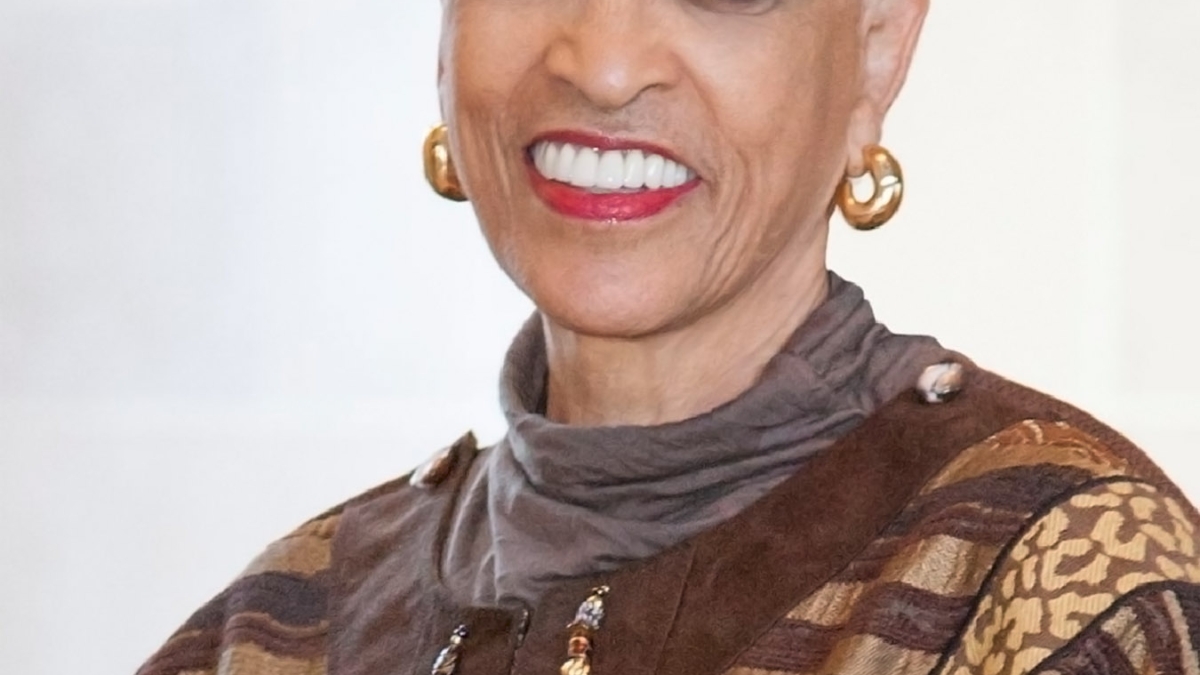Visiting scholar shines light on diversity at ASU

One of the most powerful and well-regarded African-American women in the United States, anthropologist and visionary Johnnetta Cole, has broken down barriers since age six. A decision made, she says, when she and her mother were let in a closed department store afterhours as a "favor."
She told her mother, “Never again! If I cannot walk into that store in the light of day, I will not walk in that store in the darkness of night.”
That favor and growing up in the racial segregation of the South launched her life toward service and bridging racial and gender divides.
Cole, the director of the Smithsonian National Museum of African Art and former president of Spelman College and Bennett College for Women, brought 30 years of experience in education and pioneering thinking to Arizona State University on Feb. 5, as part of a series of talks hosted by ASU’s Faculty Women’s Association.
In three separate sessions, she spoke about “Leadership in Higher Education,” “Diversity in Arts and Humanities” and “Diversity and Inclusion in American Higher Education,” which focused on the current struggles for representation in higher education.
Cole’s message about inclusion resonated with the more than 300 ASU faculty, staff and students who attended, framing diversity as a social and moral value, but also as a pivotal strength in business and innovation.
“Few of us realized before Dr. Johnnetta Cole's magnificent visit the inspiration, energy and wisdom she would instill in those who heard her speak and interacted with her,” said Susanne Neuer, president of the Faculty Women’s Association.
Cole, in turn, seemed impressed by the number of faculty of color and students of color, and for the support at ASU for true diversity in inclusiveness. She spoke of “the special things happening at ASU” and of the impact of the day on her as she met with faculty leaders and representatives from the community, including the ASU Women of Color Caucus.
“It was a privilege to see so many students of color feel empowered to speak their minds at the evening keynote, for example, a very moving moment in the day,” said Cynthia Hogue, director of the creative writing program and the Maxine and Johnathan Marshall Chair in Modern and Contemporary Poetry in the Department of English.
Inclusion and excellence through diversity is a cornerstone of the New American University. ASU now champions the most diverse tenure-track faculty in its history, leading the nation in hiring of women and minority women, when compared to the 16 institutions designated as peer institutions by Arizona Board of Regents.
Supporting that growth since 1954, the Faculty Women’s Association has served as an key resource and source of support for faculty to succeed in their careers. According to Karen Engler, a senior coordinator with the Office of the Provost for the ASU Commission on the Status of Women and the Faculty Women’s Association, as part of the mission of the organization, each year the FWA provides a variety of programming in areas such as promotion and tenure success, grant writing and leadership.
This year, the association wanted to take its leadership programming one step further by bringing in a nationally-recognized leader for a series of university-wide events.
“Dr. Cole is an intellectual and a role model of unique stature," said Eduardo Obregón Pagán, vice provost and Bob Stump Endowed Professor of History. "She reinforced that the call for transformative change rests upon our willingness to engage others in a spirit of respectful dialogue. We were much edified by her observations and inspired to collective commitment on those issues that we are working to improve at ASU.”
Cole’s delivery was powerful, and her storytelling reflective of her stature and lived experiences as a prominent thought leader, noted many who attended the lectures.
Carol Sumner, senior associate dean of students, said she came away with these nuggets of wisdom: “You cannot care about diversity and inclusion without caring about leadership;” “Doing for others is the ultimate expression of leadership;” “Diversity brings ... different truths;” and “You can’t lead where you won’t go.”
Sumner said that Cole reaffirmed that the path to leadership and the celebration of diversity and inclusion requires the work of many.
“The lesson we take away is that we must learn to celebrate our differences and also acknowledge our similarities as we work toward meaningful inclusion within the institutions of our society,” said Rebecca Tsosie, associate vice provost and Regent’s Professor, who, along with Pagán, heads ASU’s Office of Academic Excellence and Inclusion. “There is still yet much work to be done.”